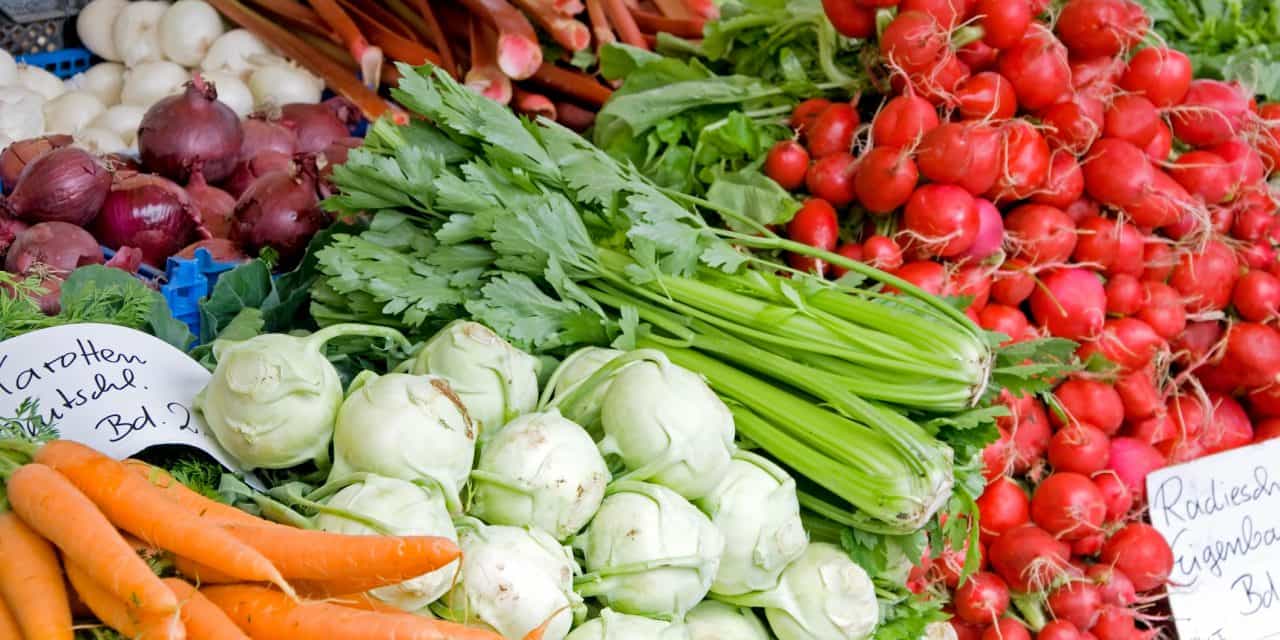Why are carbs important?
What are the best carbohydrates to include in our diet to improve our health and slow aging? We explain in this post and look at the importance of carbohydrates.
We run on sugars for energy, but we need not be run down by them. It’s not hard to keep track of our sugar load by looking at the glycemic index and the carbohydrate content of our food.
Replacing foods that contain refined sugars with whole fruit products is one simple, yet valuable, change. In fact if this is the only change to your diet that you make when aging, it will arguably be the one that has the greatest impact.
To provide sustained energy and greater nutritional value in our diet as we age, we need to change our focus from simple sugars to complex-carbohydrate containing foods. Finding low GI substitutes will also help.
Just by replacing refined products with wholegrain equivalents we can more than double our intake of total and soluble fiber. This also gives us the added bonus of phytonutrients contained in the germ.
There is building evidence to support the role our gut bacteria play in the maintenance of health. This includes all chronic health complaints, and depression and anxiety. To improve general wellbeing in our older years, eat resistant starch found in reheated cooked complex carbohydrates such as potato starch. This feeds and nourishes one of our greatest resources for health – our own gut bacteria.
What are the best carbohydrates for healthy aging?
Whole grains
- 2-3 serves per day (1 serve = 1 slice of bread, a cup of rice, cereal or pasta).
Rice
- Use brown rice that keeps the germ, instead of white varieties.
- Try Basmati or wild rice, as they have a lower GI than Jasmine or short grain rice.
- Soak washed brown rice for 20 minutes in warm water prior to cooking it. This process stimulates germination, and releases more of its nutrients.
- Avoid ‘easy-cook’ or ‘one minute rice’, as its nutrient value has usually been depleted and generally has a higher GI.
Bread/crackers/baking
- Switch to whole grain bread, or bread that is high in whole rye, whole grain barley, sunflower, linseed (flaxseed) or bulgur. Keep in mind that multigrain breads are white bread with seeds. While the seeds have nutritional value, the best choice is wholegrain seeded bread. White flour has had the nutritious ‘germ’ removed and, with it, much of the nutritional value.
- Use whole grain wheat flour compared to white ‘all purpose’ flour for baking (it has ten times the fiber content).
- Buy from the bakery that uses whole grains (if they don’t know, find a shop that knows what they are putting into their food!).
- Avoid crispy snacks such as chips, rice crackers and white crackers in your diet. Substitute with vegetable sticks and humus, avocado dips or use wholegrain alternatives based on rye, whole wheat or other grains.
- Experiment with wheat flour substitutes such as spelt, amaranth or kamut flour. Try spelt and kamut bread or rye crackers instead of wheat based breads.
- Try sprouted breads for their added nutritional value.
Pasta
- Substitute normal yellow varieties of pasta with brown pasta.
- Avoid rice and corn pastas unless you are on a gluten free diet, as they have a high GI.
- Swap pasta for vegetables (grated cauliflower is great as a pasta substitute).
Breakfast cereals
- Try a breakfast cereal that says ‘whole grain’, not just wheat.
- Consider oat bran rather than just oats, as brans are more concentrated and therefore we need to eat less to carry the same benefit.
- Avoid highly-processed cereals, especially those with a high GI. Avoid microwave and instant or quick cook oats. The more processed (literally chopped up into finer pieces) the higher GI our cereal becomes. Instead choose unprocessed cereals such as untoasted muesli, Bircher muesli and porridge. Choose rolled oats as they are a low GI sustained source of energy.
- Mix with products that slow sugar absorption (e.g. have strawberries or fruit with your cereal).
Sugar
- Substituting refined sugars and the foods that contain them (soft drinks, icing, etc) with fruit products is a simple and very beneficial change. In fact, this is a key change to make in your diet as you age.
- Substitute highly-processed (white) sugar with unrefined Rapadura. This is different from raw, brown or black sugar, Demerara or sucanat. Rapadura contains vitamins, minerals and other trace elements as well as the sweet taste that we all love. You’ll also be helping the planet as Rapadura comes from organically grown sugar cane from Colombia and Brazil through fair trade programs.
Substitute:
| White bread | Sourdough wholegrain, brown wholegrain bread |
| Wheat bread | Spelt bread, kamut bread, rice bread, white wheat pasta |
| White wheat pasta | Wholemeal pasta |
| Wheat pasta | Kamut, Spelt or wholegrain rice pasta. White corn and rice pasta have a very high GI so if you can find them go for the wholegrain varieties |
| White rice | Brown long or short grain rice (Long grain has a lower GI than short grain brown rice) Basmati rice |
| White biscuits/crackers | Wholemeal biscuits, brown rice cakes |
| Wheat biscuits | Brown rice cakes, rye crackers |
| Rice and pasta alternatives | Quinoa, Amaranth, Buckwheat, grated cauliflower, potato, pumpkin, sweet potato |
| Rolled oats | Brown rice flakes, Spelt flakes |
| Packaged cereals | Rolled oats raw in muesli or as porridge, brown rice flakes, Spelt flakes, cooked brown rice |
Last Reviewed: 21-Jun-2017
Editor
Latest posts by Editor (see all)
- Oily fish and diabetes prevention - 04/06/20
- Manage the andropause - 11/12/17
- Testing testosterone levels - 07/12/17







